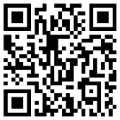Learning Sets Knowledge Effect on Confidence Level in Teaching of Informatics Education Students
Abstract
Full Text:
PDFReferences
M. S. B. Azsezer and A. I. Saban, “An Investigation of Teacher Candidates’ Perceptions About Physical Dimension of Classroom Management,” Eur. J. Educ. Res., vol. 6, no. 2, pp. 199–212, 2017, doi: 10.12973/eu-jer.6.2.199.
M. A. Kashem, “The Effect of Teachers’ Dress on Students’ Attitude and Students’ Learning: Higher Education View,” Educ. Res. Int., vol. 2019, pp. 1–7, 2019, doi: 10.1155/2019/9010589.
M. Anwar and M. Anis-Ul-Haque, “Teacher Academic Optimism: A Preliminary Study Measuring the Latent Construct,” FWU J. Soc. Sci., vol. 8, no. 1, pp. 10–16, 2014.
M. Aritonang, “Motivation and Confidence of Indonesian Teachers To Use English As a Medium of Instruction,” TEFLIN J. - A Publ. Teach. Learn. English, vol. 25, no. 2, p. 147, 2014, doi: 10.15639/teflinjournal.v25i2/147-167.
T. Rahayu and K. Osman, “Knowledge Level and Self-Confidence on The Computational Thinking Skills Among Science Teacher Candidates,” J. Ilm. Pendidik. Fis. Al-Biruni, vol. 8, no. 1, pp. 117–126, 2019, doi: 10.24042/jipfalbiruni.v8i1.4450.
A. Nasar and M. B. U. Kaleka, “The Effect of Distance Learning With Learner Center Micro Teaching Model On Student’ Teaching Confidence and Teaching Skills,” JIPF (Jurnal Ilmu Pendidik. Fis., vol. 5, no. 3, p. 159, 2020, doi: 10.26737/jipf.v5i3.1834.
V. Žydžiūnaitė and A. Arce, “Being an innovative and creative teacher: Passiondriven professional duty,” Creat. Stud., vol. 14, no. 1, pp. 125–144, 2021, doi: 10.3846/cs.2021.14087.
P. N. Rahmawati and E. Hasanah, “Kreativitas dan Inovasi Guru Dalam Pembuatan Materi Guru Pada Masa Pandemi,” J. Adm. Pendidik., vol. 28, no. 1, pp. 113–124, 2021.
A. Y. V. Wote and J. O. Sabarua, “Analisis Kesiapan Guru dalam Melaksanakan Proses Belajar Mengajar di Kelas,” KAMBOTI J. Sos. dan Hum., vol. 1, no. 1, pp. 1–12, 2020, doi: 10.51135/kambotivol1iss1pp1-12.
H. Syabrus, “Kesiapan dalam Pelaksanaan Proses Belajar Mengajar Sekolah Menengah Kejuruan Kota Pekanbaru.,” J. Pendidik. Ekon. dan Bisnis, vol. 7, no. 1, pp. 24–30, 2015, [Online]. Available: https://www.neliti.com/publications/8919/kesiapan-dalam-pelaksanaan-proses-belajar-mengajar-sekolah-menengah-kejuruan-kot.
J. Adri, N. Jalinus, A. Ambiyar, J. Jama, and M. Giatman, “Pengaruh Kesiapan Mengajar Terhadap Sikap Mengajar Calon Guru Muda,” J. Vokasi Mek., vol. 2, no. 2, pp. 15–21, 2020, doi: 10.24036/vomek.v2i2.99.
D. Alwiyah and N. Imaniyati, “Keterampilan Mengajar Guru Dan Kesiapan Belajar Siswa Sebagai Determinan Terhadap Hasil Belajar Siswa,” J. MANAJERIAL, vol. 17, no. 1, p. 95, 2018, doi: 10.17509/manajerial.v17i1.9767.
DOI: http://dx.doi.org/10.17977/um010v4i22021p68-72
Refbacks
- There are currently no refbacks.
 | Letters in Information Technology Education (LITE) |

1.png)
1.png)
4.png)
1.png)
.png)
.png)

3.png)
1.png)
1.png)

3.jpg)